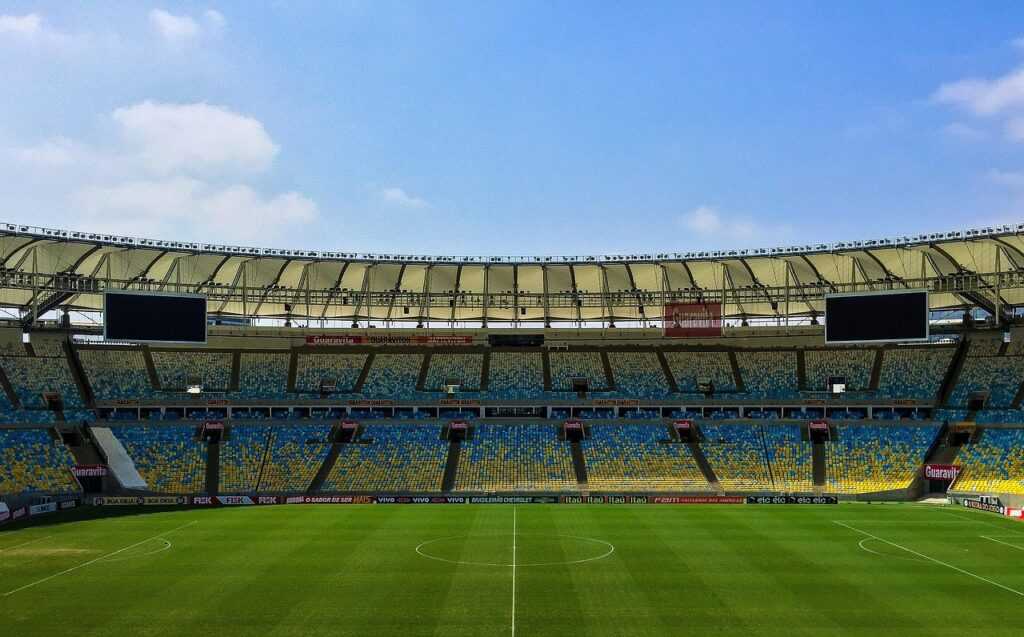History Of The Tour De France
The Tour de France began in 1903. Henri Desgrange, a French journalist and cyclist, organized the race to boost circulation for the newspaper L’Auto. The inaugural race covered 1,509 miles over six stages, spanning from Paris to Lyon, Marseille, Toulouse, Bordeaux, and Nantes.
Over time, the Tour evolved. In the 1910s, the race first tackled the Pyrenees mountains. By 1919, the organizers introduced the iconic yellow jersey, symbolizing the overall leader. The jersey was chosen to represent the newspaper’s yellow pages.
World Wars I and II interrupted the Tour. The race resumed in 1947, quickly regaining global prominence. New challenges emerged post-war, including longer routes and more countries hosting stages.
Since its inception, the Tour de France has seen technological advancements. From steel-framed bicycles to lightweight carbon fiber ones, equipment continually improves. Innovation extends to cycling gear, nutrition, and team strategies, enhancing performance.
The Tour’s early controversies also shaped its history. Maurice Garin, the first winner, faced disqualification in 1904 for alleged cheating. Similar scandals have continued, including the notorious doping cases in the late 20th and early 21st centuries.
Despite challenges, the Tour remains cycling’s ultimate test of endurance and skill. It attracts top athletes, millions of spectators, and continues to captivate the world.
Notable Highlights
The Tour de France has produced numerous unforgettable moments and historic victories that have captivated fans worldwide.
Historic Wins
Eddy Merckx cemented his legendary status by winning the Tour de France five times between 1969 and 1974. Bernard Hinault matched this record with victories from 1978 to 1985. Lance Armstrong had seven consecutive wins from 1999 to 2005, though these titles were later stripped due to doping violations. Another milestone includes Miguel Indurain’s five successive wins from 1991 to 1995, showcasing exceptional endurance and strategy.
Memorable Moments
In 1989, Greg LeMond won by just 8 seconds, marking the closest finish in Tour history. The 1967 incident involving Tommy Simpson, who tragically died during a mountain stage, brought increased scrutiny on performance-enhancing drugs. More recently, in 2013, Chris Froome overcame fatigue and mechanical issues to secure his first of four wins. Fans also recall 2003, when Lance Armstrong narrowly avoided a crash with a spectator’s bag, displaying extraordinary bike handling skills.
Iconic Cyclists

Iconic cyclists have left indelible marks on the history of the Tour de France. From legends of the past to promising new talents, their performances continue to captivate audiences.
Legendary Riders
Eddy Merckx stands out with his five Tour de France victories, earning the nickname “The Cannibal” for his relentless competitiveness. Bernard Hinault, another five-time winner, showcased his dominance in the 1970s and 1980s, becoming a French national hero. Despite his seven consecutive wins being nullified for doping, Lance Armstrong’s impact on the Tour remains significant, bringing both fame and infamy to the sport. Miguel Indurain’s five back-to-back titles from 1991 to 1995 still impress cycling enthusiasts due to his remarkable endurance.
Rising Stars
Tadej Pogačar has quickly become a household name with his back-to-back Tour wins in 2020 and 2021 at just 21 years old. His dominance in both climbing and time trials sets him apart from his peers. Another young talent, Egan Bernal, secured his first Tour de France victory in 2019, becoming the youngest winner in more than a century. Wout van Aert, known for his versatility, excels in various terrains, making him a contender to watch. These rising stars promise to bring fresh excitement and fierce competition to the Tour de France for years to come.
Major Controversies
Tour de France has seen its fair share of controversies, often overshadowing the incredible feats of endurance and skill. These controversies have left a lasting impact on the sport and its perception.
Doping Scandals
Doping scandals have plagued the Tour de France for decades. The most infamous case involved Lance Armstrong, who won seven consecutive titles from 1999 to 2005. However, in 2012, he was stripped of these titles after the United States Anti-Doping Agency (USADA) uncovered systematic doping. Various other high-profile riders, including Jan Ullrich and Floyd Landis, also faced similar allegations and consequences. The prevalence of these scandals prompted the Union Cycliste Internationale (UCI) to implement stricter anti-doping measures. For example, the Biological Passport program was introduced in 2008, targeting abnormal blood values to detect doping.
Rule Violations
Rule violations are another source of controversy at the Tour de France. Riders have faced disqualification for various infractions, such as drafting behind team cars or taking illegal feeds. In 2017, Peter Sagan was disqualified after being accused of elbowing Mark Cavendish, causing a crash. Though many debated this decision, it highlighted the stringent regulations governing the race. Moreover, technical regulations, such as bike modifications and the permitted use of technology, have stirred debates among teams and officials. The Tour continues to enforce these rules strictly, maintaining fair competition and safety standards.
Impact On The Cycling World
Cultural Influence
The Tour de France profoundly impacts not just cycling but also pop culture worldwide. This legendary race transcends sports, becoming a symbol of endurance and human spirit. Every summer, millions tune in, cementing its position in global media.
- Art and Media: Athletes and iconic moments from the Tour inspire numerous documentaries, books, and films, influencing culture beyond cycling. For instance, movies like “Breaking Away” and “The Program” draw from the rich history and drama of the race.
- Tourism: The race also boosts tourism in France as fans from around the world flock to witness it firsthand. Towns and cities along the route gain international exposure and economic benefits, showcasing France’s scenic beauty.
Technological Advancements
The Tour de France greatly advances cycling technology, driving engineering innovations and technical enhancements.
- Bicycle Evolution: Over the years, bikes have evolved from simple designs to high-tech machines. Modern carbon fiber frames, electronic gear shifting, and aerodynamic components significantly enhance performance and efficiency.
- Sports Science: Sports science contributions include advanced training methods, nutrition plans, and injury management, optimizing rider performance. For example, power meters and heart-rate monitors let riders analyze and adjust their exertion precisely.
- Safety Gear: Continuous improvements in safety gear, such as helmets and protective clothing, have made the sport safer. Enhanced crash protection and innovations in material science protect riders better than ever.
These cultural and technological impacts highlight the Tour de France’s pivotal role in shaping modern cycling and broader societal trends.
Future Of The Tour De France
The Tour de France, with its storied history and global acclaim, faces both challenges and opportunities as it moves forward. Technological advancements promise to shape future races. Innovations like augmented reality for spectators and advanced analytics for teams could enhance both viewer engagement and race strategies.
Climate change impacts the race logistics. Hotter summers necessitate improved rider hydration and gear adaptations for extreme weather. Organizers might alter routes to avoid regions affected by climate extremes.
Anti-doping measures remain crucial. The UCI continues to enforce and update regulations, ensuring fair competition. Biological passports and advanced testing methods will likely evolve, maintaining the integrity of the sport.
Diversity and inclusion efforts gain momentum. Increased representation of women, minorities, and smaller teams could broaden the Tour’s appeal. Initiatives to support emerging talent from diverse backgrounds help ensure a more inclusive future for cycling.
Sustainability becomes a priority. Eco-friendly practices, from reducing the carbon footprint of event logistics to promoting cycling as a green mode of transport, align the Tour with global environmental goals. This focus on sustainability will likely influence race planning and execution.
The global reach of the Tour de France expands. More international stages could occur, showcasing new landscapes and engaging wider audiences. This global expansion would further solidify the Tour’s status as the premier cycling event worldwide.
Adaptive technologies enhance rider safety. Innovations in gear, such as smart helmets and crash-detection systems, will continue to evolve, reducing risks and improving overall rider safety.
While the Tour de France embraces its rich heritage, it remains poised to adapt and evolve, ensuring its place at the pinnacle of professional cycling.


